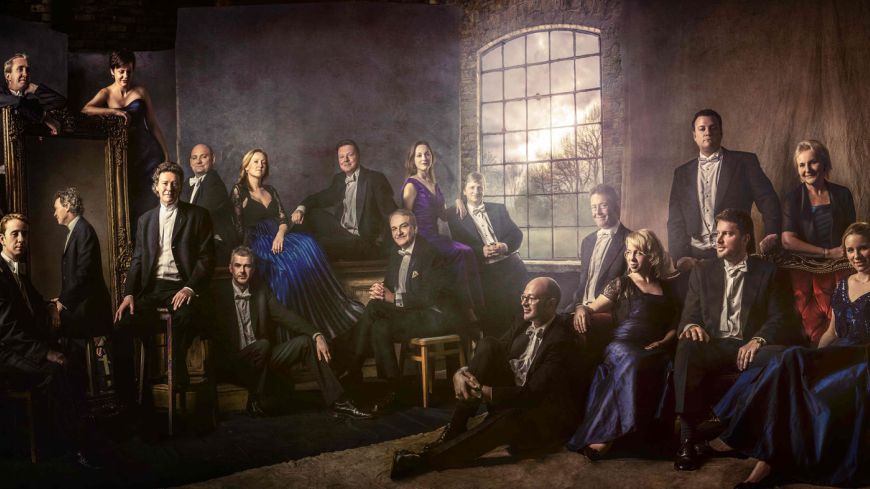
We needed to cast our minds back to pre reformation times, to the fifteenth century, when music in church was reaching its zenith not just in England but in James IV's Scotland. Indeed his palace at Stirling Castle is reputed to have had as good a choir of canons and prebends to match any English cathedral.
Harry Christophers created The Sixteen in 1979 as a choir to specialise in this type of music. Since then they have grown and are acknowledged as leaders in the field. Harry Christophers was conducting, but he was aware that the present day Scottish composer, James MacMillan, was in the audience to hear his take on fifteenth and sixteenth century choral works. We heard MacMillan's Miserere which was written for The Sixteen in 2009 and is the full text of Psalm 50 in Latin.
Robert Wylkynson's Jesus autem transiens/Credo in unum Deum appears in the Eton Choirbook, complied between 1503 and 1505. Wylkynson was probably one of its compilers. We heard thirteen male singers, one for each apostle and Christ, singing the canon from the Apostles' Creed.
Only Robert Carver's O bone Jesu surpasses Wylkynson's work in the Eton Choirbook and was sung by 19 voices, a full choir in those days.
What particularly took my interest were the Tunes for Archbishop Parker's Psalter. The Reformation severely damaged church music, even to forbidding it at times in the sixteenth century. My late partner, a former Secretary-General of the Church of England, used to sneer at Scottish metrical psalms. The Sixteen were singing Tallis' tunes written for Archbishop Parker's Psalter, published in 1567, too late for John Day's were published five years earlier and took root. But nevertheless, here was the fledgling Church of England promoting metrical psalms - taken from a range in The Book of Psalms.
The Usher Hall was as if a magnificent cathedral - for a full house to hear church music of five hundred years ago. The applause was truly rapturous.
Event: Wednesday 21 August 2013 at 7.30pm

